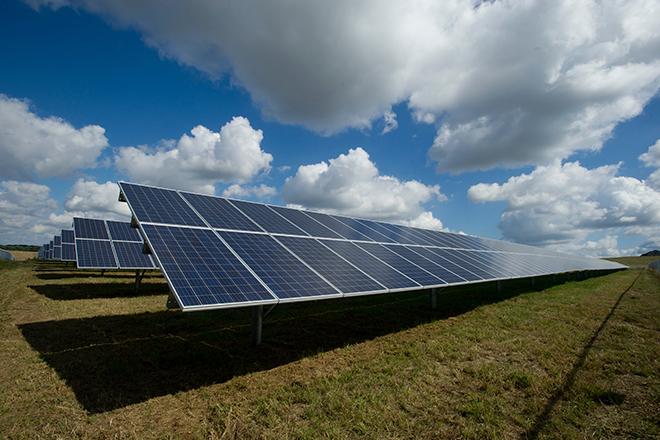Ethical Dimensions of Renewable Energy and Sustainability Systems

Credit: Solar Panels by American Public Power Association is free to use
Resource Description
This course presents an examination of ethical issues relevant to systems-based research procedures, professional conduct, social and environmental impacts, and embedded ethics in research and professional practice in RESS based jobs. In this course, you will consider case studies of ethical issues that can arise when engaging renewable energy and sustainability systems. You will also develop an ethics case study based on your area of RESS interests. The goals of the course are to provide you with tools for analyzing ethical issues both in the line of professional duties and in consideration of the various ethical issues that face an entire sector of renewable energy and that underpin the very reasons for taking a sustainable and renewable approach. Learn moreFoundations in Sustainability Systems
Resource Description
Sustainability denotes one of the main future challenges of societies and the global community. Issues of sustainability range from energy and natural resources to biodiversity loss and global climate change. Properly dealing with these issues will be crucial to future societal and economic development. This course provides the theoretical background for the discussion and analysis of sustainability issues. Students will recognize specific sustainability issues, such as sustainable energy, as part of a more complex challenge of developing sustainable societies and systems, and against the background of the general meaning and implications of the conception of sustainability. Learn moreSustainability and Non-Market Enterprise

Credit: White Windmill by fxxu is licensed under CC0
Resource Description
The primary goal of this course is to provide a toolset for characterizing and strategizing how non-market forces can shape current and future renewable energy markets. The course approaches the exploration and explanation of key concepts in renewable energy and sustainability non-market strategies through evidence-based examples. Main topics for the course include: a sociological approach to markets, renewable energy markets, non-market conditions, complex systems analysis, and renewable energy technology and business environments. Because renewable energy costs are higher than fossil fuel cost per unit of energy, the main arguments in support of renewable energy, thus far, are functionally non-market in character, i.e., environmental (e.g., climate change), political (e.g., energy independence), and/ or social (e.g., good stewardship). Learn moreSustainability Driven Innovation

Credit: Light Hands Bulb Bright 911919 by Ruben Rubio licensed under CC0
Resource Description
Are you prepared to find strategic opportunities for sustainability-driven innovation within your business or organization? This engaging course will prepare you to do just that. BA 850 will give you the tools and practical experience needed to discern consumer and organizational needs related to sustainability, to create unique offerings to meet sustainability needs, and to develop innovative processes necessary to test and refine sustainable solutions. Learn moreTechnologies for Sustainability Systems

Credit: Group of People Inside Building by Riccardo Bresciani is free to use

